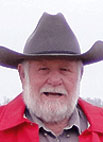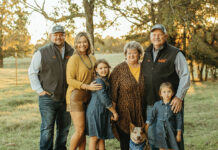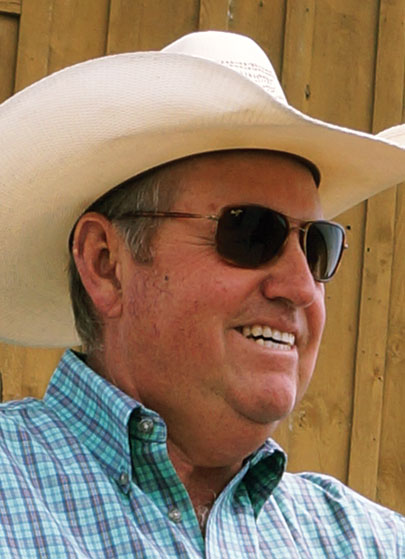
Charles and Judy Williams own Osage Valley Farms on 197 acres in Berryville, Ark., where they raise registered black and polled Limousins. However, Limousins were not always the animal of choice. Charles has raised feeder pigs and chickens as well as running a dairy while driving a feed truck.
Nonetheless, Charles still found time for his love of music. From the time he was a teenager, he played the guitar and sang country music. In the early 60s he played fiddle for square dances. He remembers playing for the folk festival and barefoot ball in Eureka Springs where he changed the mood of the audience by playing two hoedowns, “Black Mountain Rag” and “Boil Them Cabbage Down” to a crowd more than ready for the change.
After Charles’ dad returned from World War II, he bought 160 acres near the Missouri border and built a small house for his family while he began to dairy. Charles’s earliest farming memory is being assigned a cow to milk when he was only 9 while his dad milked three or four. Charles said, “My father worked hard and eventually developed a Grade A dairy.”
When Charles and Judy married in 1990, Charles had chickens and a Grade A registered Holstein dairy. He then decided to try commercial cattle instead of dairying and used a Red Limousin bull and mixed breed heifers but was unsatisfied with the results. In 1991, he researched Black Limousin deciding he liked their looks and docility and determined raising breeding stock was best for them. He bought his first registered Black Limousin bull in 1993 and has improved the registered herd until at this time they are 100 percent homozygous black and 80 percent homozygous polled. The goal is to have the herd at 100 percent of both traits within a year. As part of that process, Charles plans to soon sell 10 2 to 3-year-old cow/calf pairs because the mommas are not homozygous for the polled gene though some of the calves will be. Also, selling at this time will require purchasing less supplemental hay this winter. Charles prefers spring calving but delayed this year to fall calving so the heifers had more growth time. He is happy with the decision and will switch back when conditions allow.
Water became an issue in the last two summers because of the severe drought. Some of the ponds became too muddy to use. An interim solution was to organize his pastures so cattle had access to running water. That, however, was not environmentally viable. Therefore, Charles drilled two wells for the cattle in conjunction with a program offered by the Farm Service Agency. The wells are 437 and 601 feet deep and will now be the only water source for the cattle.
Charles routinely sows 100 acres of wheat in the early fall although this year the wheat was not as productive as usual because of the drought. While Charles used chicken litter for fertilizer, selling the chicken houses has made using commercial grade fertilizers more cost-efficient. Adaptations in his normal haying process may also have to be made if the summer is once again dry. In a normal year Charles hays everything once and then uses pastures only as needed with perhaps 50 percent of the land used for additional haying.
Part of the challenge in raising breeding stock is keeping the genetics diversified for returning customers who seek new bloodlines to mix with the ones they have already purchased. Consequently Charles uses both AI and herd bulls that are changed periodically. The main source of income is selling bulls for breeding to commercial cattlemen and also to other registered Limousin breeders.
Another challenge, according to almost 75-year-old Charles, is getting older. He said, “I will keep working until God takes me home, but what used to take me an hour now takes me three. Age just catches up with you.” One concession Charles made was to sell his chicken houses in 2011 so he could focus his full attention on his Limousin herd.
Though Judy lived in the country, she had no farming background and worked as the director at the Berryville Head Start program for 28 years and now is the director of the Green Forest site of the Carroll County Learning Center. Nonetheless, she got into the farming spirit and helps wherever needed on the farm.
While Charles keeps track of the genetics, Judy enters all of the data into the computer and is the bookkeeper. The couple works well together and admits they get up early every morning so they have time to sit on the front porch for at least a few minutes. Judy said, “It’s our time to thank God for the day and the wonderful life we have.” Charles and Judy are also very active in the Gideons International and their church.







